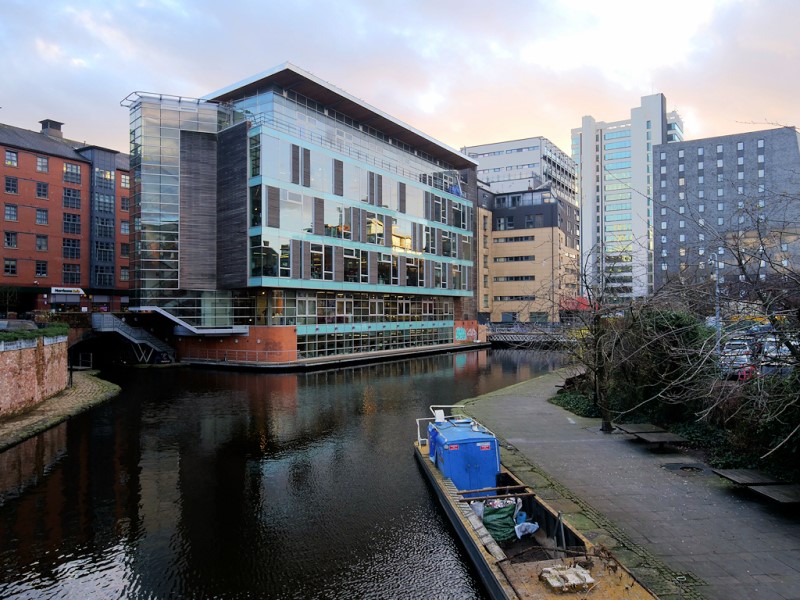 Welcome to REDI-Updates. REDI-Updates is a bi-annual publication which will get behind the data and translate it into understandable terms. WM REDI staff and guest contributors will discuss various topics, with this first publication focusing on how inclusive growth can be a tool to tackle regional imbalances across the UK. In this article, Dr Abigail Taylor highlights local policy approaches to improve inclusive growth for residents in regions around the UK.
Welcome to REDI-Updates. REDI-Updates is a bi-annual publication which will get behind the data and translate it into understandable terms. WM REDI staff and guest contributors will discuss various topics, with this first publication focusing on how inclusive growth can be a tool to tackle regional imbalances across the UK. In this article, Dr Abigail Taylor highlights local policy approaches to improve inclusive growth for residents in regions around the UK.
View and download the magazine.
In November, as part of the ‘Inclusive Growth in Cities: Global Lessons for Local Action’ conference at the University of Manchester, I visited Rochdale Boroughwide Housing (RBH). RBH is the UK’s first tenant and employee co-owned mutual housing society. It has over 13,000 homes throughout the local area. RBH is seeking to regenerate the area delivering a wider mix of high-quality homes, more green spaces and easier routes into the town centre. But, crucially a key priority of this project is to enable communities already established in the area to remain in the new development. RBH then support these residents to improve their skills and look for better and more secure employment through a one year, hyper-local programme in which residents receive intensive support from a careers broker/life coach.
The aim is to enable residents to “thrive not survive”.
The programme, funded by RBH and Rochdale Borough Council, is designed to have strong links with employers, propelling users into meaningful employment. The work coach is supporting firms to better support their employees, for example through raising awareness of trauma and how to motivate their workforce, delivering greater retention and recruitment. The programme appears to be taking a practical approach to meeting an individual’s needs. Rather than having one intake per year, RBH seeks to work with employers and training providers straight away when someone expresses interest in the programme. A key element of the programme is that it does not involve targets. The staff I spoke to on the visit suggested this has been significant in encouraging them to be “more creative” with the support offered, through well-being and mindfulness. Such support appeared to be highly valued by participants. However, the lack of targets raises the question of how you can best measure success if targets are not used.

The conference theorised some of the aims and goals that were bought out within RBH’s project. Hosted by the Inclusive Growth Analysis Unit (IGAU) at the University of Manchester, it brought together academics, thought-leaders and policy-makers, featuring traditional presentations as well as innovative site visits and panel discussions.
I had the privilege of presenting at the conference. In my paper, I discussed the rationale for using what is termed a geographic saturation model as a place-based approach to employment support delivered in low-income neighbourhoods. The model stresses the importance of using social networks and wider community engagement to promote participation in the programme and employment. Together with other researchers from City-REDI and the Institute for Employment Studies, I am currently evaluating the Connecting Communities Employment Support Programme which adopts a geographic saturation model.
At the same conference, there was the opportunity to hear about initiatives taking place elsewhere in the country that is similar to the Connecting Communities programme. Sue Jarvis and Belinda Tyrell presented the Households into Work programme in Liverpool City Region. There were clear cross-overs with the Connecting Communities programme in terms of the importance of linking people to existing services and of policy being designed to meet local needs.
RBH’s project is a good representation of the importance of place, and of linking communities with employers to fully realise a geographic saturation approach. The area of Rochdale where RBH’s housing development is located was run down and according to RBH welfare reforms had made the area less popular. The houses and tower blocks were physically cut off from the Town centre by fencing, walls and a main road. This resonated with how Torsten Bell, Chief Executive of the Resolution Foundation during a keynote in the conference emphasised how historically high employment and job gains going to poorer families in recent years have been accompanied by progressive but slow pay growth, rising child poverty levels, rising productivity gaps and rising growth in wealth gaps between generations.
Rochdale also shows how devolution is increasing opportunities for a place-based approach to inclusive growth. Rochdale Stronger Together was established in 2017 and is designed as an “ambitious community approach to bring residents, local institutions and community businesses together to forge a good local economy and spread community wealth”. Greater Manchester offers prospects for inclusive growth through developing a whole city strategy. Examples of policies designed to link people to opportunities include the Get Me There pass offering free bus travel to 16-18 years across Greater Manchester. Similarly, Bridge GM, a careers programme designed to nurture the talents of young people and connect and prepare them for future labour market opportunities.
At the conference, Professor Ruth Lupton, Head of the IGAU, stressed how Greater Manchester – like the West Midlands – is moving towards a more inclusive economy with the establishment of a Good Employment Charter, a Co-operative Commission and an anchor institutions steering group. Professor Lupton stressed the need for inclusive growth to be “hard-wired” into policy-making in the area, through the new Greater Manchester Strategy, greater use of metrics, diagnostics and impact assessments, strengthened representation from under-represented groups and extended capacity for research and evaluation.

Given the importance of devolution to successful inclusive growth, how do you best achieve its impact in places where there is no Mayor, no Combined Authority and the local authority has been ‘hollowed out’? To answer, Lord Bob Kerslake, Chair of the 2070 Commission, argued that the scale of rebalancing between regions in the UK requires a comprehensive, long-term approach. Andy Burnham, Mayor of Greater Manchester, noted how inclusive growth should be locally-led, with policymakers emphasising how it is good for business. He also called for Greater Devolution in relation to the Work and Pensions budget and Adult Education, to facilitate achieving greater inclusive growth.
Professor Anne Green from City-REDI reinforced the significant themes relevant to realising inclusive growth, providing ten reflections and takeaways from the plenary sessions and workshops on the first day, such as:
- The need to repair/replace ‘broken institutions’ and the need to bring together ‘fragmented knowledge’.
- ‘Whole individual’ policies – holistic approaches supporting people to grow and realise their capabilities.
- ‘Whole Place’ based policies – policies that bring together all aspects of policy relating to living, working and wellbeing and the public realm in a single place.
- Unified public services – integrated public services across local areas and regions to support economies of scale.
Overall, I took several key points from the conference. Both the ‘inclusive’ and ‘growth’ aspects of inclusive growth are essential. Inclusivity is important but we need greater productivity across England to address increases in productivity gaps and deliver growth. Effective long-term funding is required to make a real impact in delivering inclusive growth. There is currently too much uncertainty regarding the Shared Prosperity Fund which will replace EU structural funding after Brexit. I’m even more convinced of the need for policy to be informed by good evaluation. To do this, we need much better local data and the active commitment of all stakeholders from central government, to elected Mayors, to LEPs, to anchor institutions.
It is vital to continue to share best practice regarding inclusive growth policy between areas and initiatives. Policymakers should involve a wide range of voices and stakeholders in the policymaking process to ensure that policy is co-produced. Evaluation involving local communities is key to all of this – from the very beginning.
This blog was written by Dr Abigail Taylor, Research Fellow, City-REDI / WM REDI, University of Birmingham.
To sign up for our blog mailing list, please click here.
Disclaimer:
The views expressed in this analysis post are those of the authors and not necessarily those of City-REDI / WM REDI or the University of Birmingham
